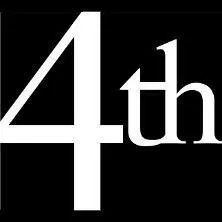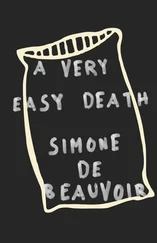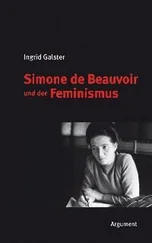
SIMONE DE BEAUVOIR
The Woman Destroyed
Translated by Patrick O’Brian

Copyright Copyright The Age of Discretion The Monologue The Woman Destroyed P.S. Ideas, Interviews & Features… About the Author ‘The Art of Fiction’ 35, The Paris Review , 1965 Life at a Glance Read On Have You Read? If You Loved this, You Might Like … Find Out More About the Author By the Same Author About the Publisher
Fourth Estate
An imprint of HarperCollins Publishers 1 London Bridge Street London SE1 9GF
http://www.harpercollins.co.uk
This edition published by Harper Perennial 2006
Previously published in paperback by Flamingo 1994 (as a Flamingo Modern Classic) and 1984, and by Fontana 1971
First published in Great Britain by Collins 1969
First published in France by Editions Gallimard under the title La Femme Rompue 1967
Copyright © in the French edition, Editions Gallimard 1967
Copyright © in the English translation, William Collins Sons & Co Ltd,
London and Glasgow, and G.P. Putnam’s Sons, New York, 1969
PS Section copyright © Louise Tucker 2006
PS ™is a trademark of HarperCollins Publishers Ltd
A catalogue record for this book is available from the British Library
All rights reserved under International and Pan-American Copyright Conventions. By payment of the required fees, you have been granted the nonexclusive, nontransferable right to access and read the text of this e-book on-screen. No part of this text may be reproduced, transmitted, downloaded, decompiled, reverse engineered, or stored in or introduced into any information storage and retrieval system, in any form or by any means, whether electronic or mechanical, now known or hereinafter invented, without the express written permission of HarperCollins e-books.
Ebook Edition © MAY 2018 ISBN 9780007405596
Version: 2018-05-16
This book is sold subject to the condition that it shall not, by way of trade or otherwise, be lent, re-sold, hired out or otherwise circulated without the publisher’s prior consent in any form of binding or cover other than that in which it is published and without a similar condition including this condition being imposed on the subsequent purchaser.
HarperCollinsPublishers has made every reasonable effort to ensure that any picture content and written content in this ebook has been included or removed in accordance with the contractual and technological constraints in operation at the time of publication.
Title Page SIMONE DE BEAUVOIR The Woman Destroyed Translated by Patrick O’Brian
Copyright
The Age of Discretion
The Monologue
The Woman Destroyed
P.S. Ideas, Interviews & Features…
About the Author
‘The Art of Fiction’ 35, The Paris Review , 1965
Life at a Glance
Read On
Have You Read?
If You Loved this, You Might Like …
Find Out More
About the Author
By the Same Author
About the Publisher
Has my watch stopped? No. But its hands do not seem to be going round. Don’t look at them. Think of something else—anything else: think of yesterday, a calm, ordinary, easy-flowing day, in spite of the nervous tension of waiting.
Tender awakening. André was in an odd, curled-up position in bed, with the bandage over his eyes and one hand pressed against the wall like a child’s, as though in the confusion and distress of sleep he had needed to reach out to test the firmness of the world. I sat on the edge of his bed; I put my hand on his shoulder.
‘Eight o’clock.’
I carried the breakfast-tray into the library: I took up a book that had arrived the day before—I had already half leafed through it. What a bore, all this going on about non-communication. If you really want to communicate you manage, somehow or other. Not with everybody, of course, but with two or three people. Sometimes I don’t tell André about my moods, sorrows, unimportant anxieties; and no doubt he has his little secrets too; but on the whole there is nothing we do not know about one another. I poured out the China tea, piping hot and very strong. We drank it as we looked through our post: the July sun came flooding into the room. How many times had we sat there opposite one another at that little table with piping hot, very strong cups of tea in front of us? And we should do so again tomorrow, and in a year’s time, and in ten years’ time … That moment possessed the sweet gentleness of a memory and the gaiety of a promise. Were we thirty, or were we sixty?
André’s hair had gone white when he was young: in earlier days that snowy hair, emphasizing the clear freshness of his complexion, looked particularly dashing. It looks dashing still. His skin has hardened and wrinkled—old leather—but the smile on his mouth and in his eyes has kept its brilliance. Whatever the photograph-album may say to the contrary, the pictures of the young André conform to his present-day face: my eyes attribute no age to him. A long life filled with laughter, tears, quarrels, embraces, confessions, silences, and sudden impulses of the heart: and yet sometimes it seems that time has not moved by at all. The future still stretches out to infinity.
He stood up. ‘I hope your work goes well,’ he said.
‘Yours too,’ I replied.
He made no answer. In this kind of research there are necessarily times when one makes no progress: he cannot accept that as readily as he used to do.
I opened the window. Paris, sweltering beneath the crushing summer heat, smelt of asphalt and impending storms. My eyes followed André. Maybe it is during those moments, as I watch him disappear, that he exists for me with the most overwhelming clarity: his tall shape grows smaller, each pace marking out the path of his return; it vanishes and the street seems to be empty; but in fact it is a field of energy that will lead him back to me as to his natural habitat: I find this certainty even more moving than his presence.
I paused on the balcony for a long while. From my sixth floor I see a great stretch of Paris, with pigeons flying over the slate-covered roofs, and those seeming flowerpots that are really chimneys. Red or yellow, the cranes—five, nine, ten: I can count ten of them—hold their iron arms against the sky: away to the right my gaze bumps against a great soaring wall with little holes in it—a new block: I can also see prism-like towers—recently-built tall buildings. Since when have cars been parked in the tree-lined part of the boulevard Edgar-Quinet? I find the newness of the landscape staringly obvious; yet I cannot remember having seen it look otherwise. I should like two photographs to set side by side, Before and After, so that I could be amazed by the differences. No: not really. The world brings itself into being before my eyes in an everlasting present: I grow used to its different aspects so quickly that it does not seem to me to change.
The card-indexes and blank paper on my desk urged me to work; but there were words dancing in my head that prevented me from concentrating. ‘Philippe will be here this evening.’ He had been away almost a month. I went into his room. Books and papers were still lying about—an old grey pull-over, a pair of violet pyjamas—in this room that I cannot make up my mind to change because I have not the time to spare, nor the money; and because I do not want to believe that Philippe has stopped belonging to me. I went back into the library, which was filled with the scent of a bunch of roses, as fresh and simple-minded as so many lettuces. I was astonished that I could ever have thought the flat forlorn and empty. There was nothing lacking. My eyes wandered with pleasure over the cushions scattered on the divans, some softly coloured, some vivid: the Polish dolls, the Slovak bandits and the Portuguese cocks were all in their places, as good as gold. ‘Philippe will be here …’ I was still at a loss for anything to do. Sadness can be wept away. But the impatience of delight—it is not so easy to get rid of that.
Читать дальше














